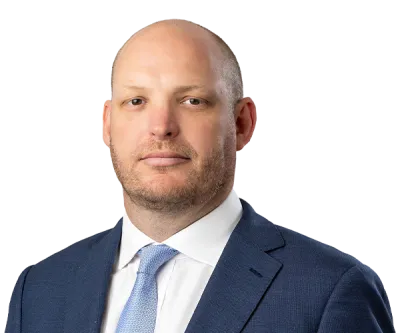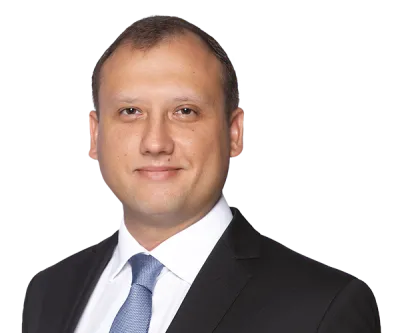Fraud, Asset Tracing & Recovery 2022/2023 – Cayman Islands (Commercial Dispute Resolution, CDR)
In this guide, lawyers from our Cayman Islands dispute resolution and litigation team explore the latest legislative, regulatory and enforcement developments in the Cayman Islands, and provide expert analysis on industry-wide topics.
1. Executive summary
The Cayman Islands is a leading global financial services industry centre, hosting most of the world’s hedge funds by number and by net assets, the second-most captive insurers, and half of the companies listed on the Hong Kong Stock Exchange. Inevitably, such a concentration of financial services activity generates a considerable number of complex disputes, including fraud disputes.
The international nature of the financial services industry and other companies registered in the Cayman Islands necessarily means that fraud litigation is almost invariably cross-border. Sometimes this will be because the assets against which the victim will need to enforce are abroad. Other times, the jurisdiction may play a supporting role in the enforcement of foreign judgments over assets in the Cayman Islands and the preservation of such assets pending the conclusion of foreign proceedings.
Whichever it is, the jurisdiction’s judiciary and legal profession are highly experienced in all types of complex cross-border fraud disputes. The Cayman Islands Grand Court has handled some of the biggest and most complex fraud trials, including the AHAB v Al-Sanea trial which concerned claims over US$9 billion, lasted over a year, resulted in a 1,300-page judgment, and has been said to have dealt with one of the largest Ponzi schemes in history.
As described in more detail below, the jurisdiction offers a full suite of discovery, document and asset preservation, and enforcement tools that will be familiar to common law practitioners. The Cayman Islands courts are also used to rendering and obtaining mutual cross-border judicial assistance in appropriate cases. These factors facilitate the successful pursuit of fraudsters in the jurisdiction, whether on a domestic level or as part of a cross-border multi-jurisdictional effort, as is more often than not the case.
2. Important legal framework and statutory underpinnings to fraud, asset tracing and recovery schemes
The legal system of the Cayman Islands is closely related to that of England and the various Commonwealth jurisdictions. Those familiar with such common law jurisdictions will find that, for the most part, they are on familiar ground when it comes to fraud litigation generally, and the business of asset tracing and recovery in particular.
While there may occasionally be some devil in the detail, particularly with many elements of common law in England becoming increasingly codified in statute, the substantive common law causes of action typically utilised by a fraud litigator in England are known to the Cayman Islands legal system.
Similarly, all the classic discovery, document preservation, and asset preservation instruments of the fraud-fighting toolkit, such as Norwich Pharmacal, Anton Piller, Bankers Trust and Mareva orders, are available and the Cayman Islands courts are well versed in their use. In appropriate circumstances, the Cayman Islands courts both issue and honour requests for foreign judicial assistance. Where fraud has resulted in insolvency and the appointment of official liquidators over a Cayman Islands company, this might sometimes open up additional avenues for making recoveries.
Publicly available information
Some information that could be useful in pursuing recoveries is, in fact, publicly available without the need to make any application to the court:
- The list of current directors of every company, whether resident or exempted, is publicly available online.
- The list of shareholders of resident companies is also available for public inspection.
- The land registry records identifying the owner of land and the existence or otherwise of a mortgage over it is open for public inspection.
- The register of aircraft, which shows the registered owner and other information, is publicly available on the Civil Aviation Authority website.
- Vessel transcripts for maritime vessels registered in the jurisdiction are publicly available from the Cayman Islands Shipping Registry website and include information about the current owner. Further information, including previous owners, mortgages, and the history of transfers, is available via an in-person inspection at the offices of the Registry.
The list of shareholders of exempted companies is not currently available to the public. However, the Cayman Islands Government has committed to the implementation of public beneficial ownership registers of companies by the time they are implemented by the EU Member States (which is expected to be in 2023).
As such, despite the jurisdiction’s somewhat romanticised reputation for secrecy, it is sometimes possible to collect useful information in support of a fraud claim before resorting to the assistance of the courts. When the time to seek the courts’ assistance does arrive, the applicant will invariably find that the judiciary is highly experienced in deciding the relevant applications, and that genuinely urgent matters are decided with due expedition.
Norwich Pharmacal
Norwich Pharmacal orders are available against those who have become “mixed up” in the wrongdoing committed by another, and are a potentially powerful tool for identifying the wrongdoer and obtaining other information that might be vital to the successful prosecution of a fraud claim. The applicant must show a good arguable case of wrongdoing, that the respondent is involved in the wrongdoing as more than a mere witness, that the target of the order is likely to have the documents sought, and that the order is necessary and proportionate in the interests of justice.
The classic targets of such orders in the Cayman Islands are the professional service providers (RO Providers) that provide registered office services to exempted Cayman Islands companies. The RO Providers are subject to strict “know your customer” and anti-money laundering requirements in respect of each company to which they provide registered office services. Among other things, they must collect and keep information about the companies’ shareholders and, in certain cases, their beneficial owners. While this information is not public, it can be the target of Norwich Pharmacal applications in appropriate circumstances.
In appropriate circumstances, a Norwich Pharmacal order can be combined with a “gag order” which prevents the subject of the order from disclosing to its client that it has been ordered to provide information. This can be important, to avoid tipping off the wrongdoer and reduce the risk of the wrongdoer destroying evidence or dissipating assets.
The Cayman Islands courts can also make Norwich Pharmacal orders in support of foreign proceedings. However, in such cases, consideration may need to be given to whether it might be more appropriate to seek relevant disclosure pursuant to a letter of request from the foreign court (Arcelormittal USA LLC v Essar Global Fund Limited [2019 (1) CILR 297]). The Cayman Islands courts have statutory jurisdiction to honour such letters of request in appropriate circumstances under the Evidence (Proceedings in Other Jurisdictions) (Cayman Islands) Order 1978. Whether the statutory remedy displaces the equitable Norwich Pharmacal jurisdiction will be a question of fact in each particular case.
Bankers Trust
Exceptionally, discovery might be obtained from banks under Bankers Trust orders to assist in the tracing and preservation of assets where there is a proprietary claim. In addition to all of the requirements that must be satisfied for a Norwich Pharmacal order, the applicant will also have to show that there is good reason to believe that the bank holds property misappropriated by fraud or breach of trust and to which the applicant has a proprietary claim. It must also be shown that the information will be used solely to trace the funds.
Anton Piller
Anton Piller orders enable an applicant to enter and search the respondent’s premises for documents and property that are the subject matter of the dispute, and to remove the same. Given the draconian nature of the remedy, the test is even more demanding than for Norwich Pharmacal orders and requires an extremely strong prima facie case, clear evidence that the respondent has incriminating evidence in its custody which there is a real possibility they will destroy, and the potential for serious damage to the applicant.
Mareva
Finally, Mareva freezing orders are available both in support of domestic proceedings and in aid of proceedings abroad. Freezing orders under the so-called “Chabra” jurisdiction may be available against parties against whom there is no claim, if it can be shown that there is a good arguable case that the third party holds assets that belong to the defendant against whom there is a claim. Chabra freezing orders may be made against third parties based in the Cayman Islands or against third parties (whether based in the Cayman Islands or not) which have assets within the jurisdiction. Freezing orders are often combined with ancillary disclosure orders that are intended to help the applicant police compliance with the freezing order.
If the applicant has a proprietary claim to the relevant assets, proprietary freezing orders may be obtained, which do not require the applicant to show a risk of dissipation.
Receivers
If the risk of dissipation is so high that even a freezing order does not offer adequate protection, the Cayman Islands courts may appoint a receiver, whose function it is to preserve the relevant assets until judgment. As with freezing orders, receivers may be appointed in support of foreign proceedings.
Official liquidators
It is often the case that fraud results in the appointment of official liquidators over the company that was defrauded or was used as the vehicle of fraud by those in control. Appointment of liquidators denudes the directors (who sometimes are the wrongdoers) of their power and brings in a partially retrospective moratorium on disposals of the company’s property, thus acting almost as a form of asset preservation. In suitable cases, appointment of provisional liquidators can be made ex parte in order to secure the remaining assets.
Further, official liquidators have unique powers that may sometimes assist in the pursuit of the fraudsters, although their exercise in that context is not always without certain difficulties.
Official liquidators have statutory powers to call for documents and information about the company’s business from certain persons (ss 103 and 138 of the Companies Act (2021 Revision)). The Cayman Islands courts will enforce those powers by their orders, including, in appropriate circumstances, against persons resident outside the Cayman Islands. Letters requesting foreign judicial assistance will be issued where appropriate. However, while these powers can prove very useful indirectly, the way in which they can be exercised is tightly controlled by the courts to avoid conferring on liquidators unfair advantage in litigation (Re Basis Yield Alpha Fund (Master) [2008 CILR 50]).
In addition to their information-gathering powers, the official liquidators have access to certain causes of action that are not available to ordinary litigants:
- avoiding preferential payments (s. 145 of the Companies Act);
- avoiding fraudulent dispositions at undervalue (s. 146 of the Companies Act); and
- seeking orders requiring persons guilty of fraudulent trading to contribute to the assets of the company (s. 147).
To the extent the company over which the liquidators are appointed still retains some cash or other liquid assets, it can also be the case that liquidators are in a stronger financial position to pursue recoveries than any of the smaller individual victims of the fraud might be. Of course, the obverse of this is that the recoveries the liquidators make go to the liquidation estate to be distributed between the relevant stakeholders pari passu.
3. Case triage: main stages of fraud, asset tracing and recovery cases
Litigation is expensive and fraud litigation is more expensive than most other forms. Therefore, a preliminary high-level assessment of the prospects of recovery (as opposed to merely the prospects of winning), coupled with early consideration of funding issues, is often a sensible first step. At such an early stage, this can never be anything like a precise exercise; even so, giving these issues some early thought can be helpful. This may require collaboration between the client, its lawyers in various jurisdictions, private investigators, forensic accountants, and funders. Key jurisdictions of interest are identified, any evidence that can be collected without involving the courts is collected, and a high-level case strategy is worked out through to enforcement.
In the next stage, the strategy is implemented in respect of any further information-gathering with the help of the court (e.g. via Norwich Pharmacal and other orders discussed above). Often, this is done in conjunction with obtaining freezing relief.
With the assets secure, substantive claims can then proceed to trial and, eventually, enforcement of judgment.
4. Parallel proceedings: a combined civil and criminal approach
Parallel civil and criminal proceedings are possible in principle, and consideration might be given to this approach in appropriate circumstances. However, they are, in practice, uncommon.
Although private prosecutions are possible in theory under ss 13 and 108 of the Criminal Procedure Code (2021 Revision) (CPC), it is the Director of Public Prosecutions (DPP) that has ultimate authority in respect of the conduct of prosecutions. In particular, the DPP has the power to take over any private prosecution at any time (s. 12(5) CPC). Even if the DPP does not exercise its power to take over the proceedings, a private prosecution may not be as easy to settle and discontinue at will as a civil case. Therefore, while engaging the criminal jurisdiction may certainly have some advantages, it also inevitably involves at least some loss of control over the process, which may be an important commercial consideration.
Further, when it comes to relief, it is the DPP that has standing to seek the powerful remedies under the Proceeds of Crime Act (2020 Revision). The decision as to whether to seek such remedies, when to do so, and which remedies to pursue is up to the DPP. Not all of those remedies will necessarily be optimal from the point of view of a private litigant’s imperative to maximise its own recoveries. As with any prosecutorial authority, there can be no expectation that the DPP will take the same view on how to proceed as the private litigant would.
Finally, undertaking parallel civil and criminal proceedings does run the risk that the civil proceedings might be stayed.
5. Key challenges
Funding is often a key practical challenge in fraud claims. The claim funding landscape in the Cayman Islands has been revolutionised with the coming into force of the Private Funding of Legal Services Act 2020. This Act has abolished the offences of maintenance and champerty and, subject to certain requirements, has enabled lawyers to accept cases on the basis of conditional and contingency fee arrangements. This can be expected to enable some claims which could not otherwise be brought for financial reasons to be prosecuted, and to open up the world of litigation funding and innovative fee structures – which hitherto was largely restricted to liquidations – to litigants in general.
With defendants, evidence, witnesses and assets often strewn across the entire globe, the other common key challenge is effective coordination of service, evidence gathering, protective measures, and enforcement strategies across multiple jurisdictions and time zones. Fortunately, the Cayman Islands courts and legal practitioners are well versed in dealing with these challenges.
6. Coping with COVID-19
The Cayman Islands judicial system, as well as its legal and forensic investigation professionals, have adapted to the challenges of operating under global pandemic conditions. The electronic filing of court documents and the availability of hearings by video conference have both seen significant expansion over the last few years. As a result, the business of the courts has carried on largely uninterrupted.
7. Cross-jurisdictional mechanisms: issues and solutions in recent times
As noted above, the Cayman Islands is a jurisdiction that is accustomed to providing and seeking cross-border judicial assistance in appropriate cases. The jurisdiction is also party to essential international service conventions, has a robust regime for the enforcement of foreign court judgments, and is a signatory to the relevant arbitration conventions facilitating the enforcement of arbitral awards. Taken together, these cross-jurisdictional mechanisms make the Cayman Islands a friendly jurisdiction for cross-border litigation.
The Hague Convention on the Service Abroad of Judicial and Extrajudicial Documents in Civil or Commercial Matters 1965 applies in the Cayman Islands and enables service of documents via the Clerk of the Court pursuant to a written request from the relevant authority of the requesting jurisdiction.
In the area of evidence gathering, the principal provisions of the Hague Convention on the Taking of Evidence Abroad in Civil or Commercial Matters 1970 apply in the Cayman Islands, having been extended by the Evidence (Proceedings In Other Jurisdictions) (Cayman Islands) Order 1978. Pursuant to these provisions, the Grand Court of the Cayman Islands regularly facilitates discovery requests from courts of other jurisdictions. While there are some safeguards on the type of evidence-gathering requests that will be effected, mostly to prevent fishing expeditions and oppressive behaviour, a considerable degree of deference is shown to the requesting foreign court’s views on what documents are necessary for the purposes of the foreign proceedings.
Enforcement of foreign judgments in the Cayman Islands proceeds on the basis of common law principles (with the exception of Australian judgments, in respect of which there is a statutory basis for enforcement). Subject to satisfying the requirements of personal jurisdiction and finality, and in the absence of any fraud, breach of natural justice, or violation of public policy, both money and (in certain circumstances) non-money judgments can generally be enforced without re-litigating the merits of the dispute.
The New York Convention on the Recognition and Enforcement of Foreign Arbitral Awards has been extended to the Cayman Islands by the United Kingdom and is given domestic effect by the Foreign Arbitral Awards Enforcement Act (1997 Revision). This makes the Cayman Islands a robust jurisdiction for the enforcement of arbitral awards, and makes arbitral awards made in the Cayman Islands enforceable in other New York Convention states. Similarly, the Washington Convention on the Settlement of Investment Disputes between States and Nationals of Other States has been extended to the Cayman Islands, making it possible to enforce Washington Convention investment arbitration awards in the Cayman Islands.
8. Using technology to aid asset recovery
Fraud and technological advancements are inextricably linked in a variety of ways. Fraudsters are often early adopters and adept users of new technology. They can also become its unwitting victims, leaving traces they did not intend to leave. The world of fraud technology can both enable and entrap. Technology can also be a powerful tool for untangling the web the fraudsters weave, helping lawyers and investigators sift otherwise unmanageable volumes of data for nuggets of evidence. Those who pursue fraud proceedings need to remain alive to the relevant technological advancements in order to succeed.
In this regard, the Cayman Islands faces some of the same issues faced by other jurisdictions the world over: an explosion in the volume of digital information; and the proliferation of multiple private messaging services with end-to-end encryption that bypass traditional email, which would otherwise trace cryptocurrency to its owners. But the Cayman Islands also benefits from the same advances in investigative technology that are available to other jurisdictions, such as the increasing sophistication of document-review artificial intelligence applications, which can enable drastic reductions in the manpower requirements for the (traditionally expensive) discovery stage of fraud litigation.
9. Highlighting the influence of digital currencies: is this a game changer?
During the course of 2020, the Cayman Islands legislature passed the Virtual Asset (Service Providers) Act, 2020 (VASP Act). The VASP Act introduces a broad definition of “virtual assets”, which covers digital representations of value that can be digitally traded or transferred and can be used for payment or investment purposes. The main purpose of the VASP Act is to establish a framework compliant with the tenets of the Financial Action Taskforce, for the supervision and regulation of virtual asset services businesses in the Cayman Islands; it can be expected that this will facilitate the growth of this industry in the jurisdiction in the coming years.
As with any other financial industry product, sector growth might be expected to correlate with a growth in connected fraud litigation in due course.
Recent judgments in the English courts (e.g. Fetch.ai Ltd v Persons Unknown [2021] EWHC 2254 (Comm)) demonstrate that the usual remedies available against fraudsters, such as freezing orders, Norwich Pharmacal orders and Bankers Trust orders, are also available in relation to fraud involving digital currencies under the common law. Such decisions may be expected to be persuasive in the Cayman Islands.
10. Recent developments and other impacting factors
The most immediate recent significant development is the coming into force in May 2021 of the Private Funding of Legal Services Act 2020. As well as doing away with the offences of maintenance and champerty, the Act has introduced much-needed clarity into the parameters within which claimants can negotiate and agree litigation funding arrangements, contingency fee arrangements, and conditional fee arrangements in the Cayman Islands.
The Cayman Islands continues to expand public access to corporate records. Having made the names of current company directors open for public inspection (in person) back in 2019, the jurisdiction has now opened up the register for online access. The jurisdiction has committed to providing public access to beneficial ownership registers once such access is implemented by the EU Member States, which is expected to be in 2023.
An original version of this briefing was published in CDR Fraud, Asset Tracing and Recovery 2022.






